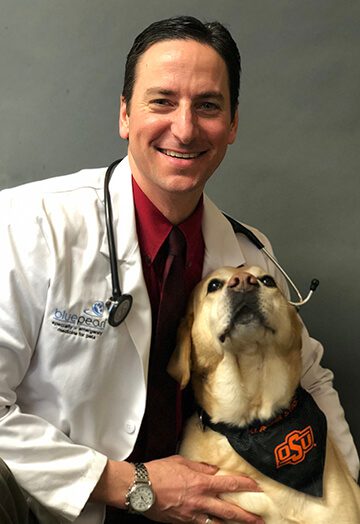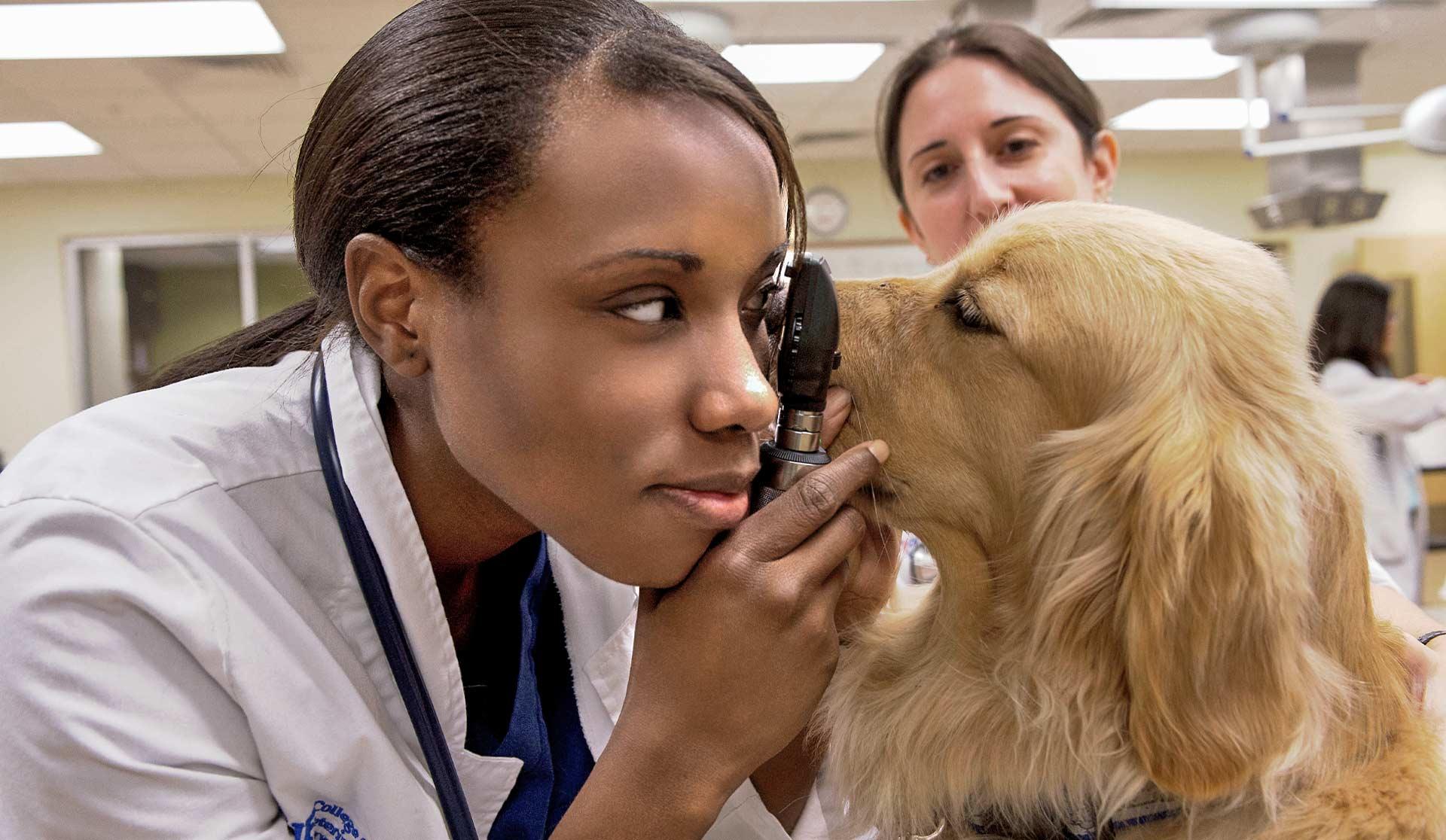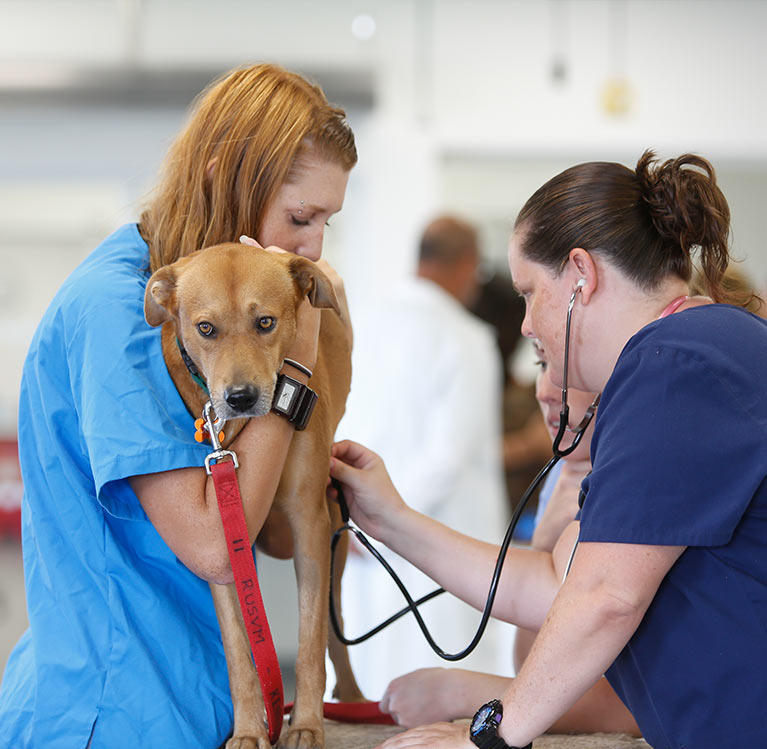Why Visiting a Veterinarian Enterprise Can Guarantee the Long-Term Health of Your Pet
Why Visiting a Veterinarian Enterprise Can Guarantee the Long-Term Health of Your Pet
Blog Article
Vaccination Standards From Your Trusted Veterinarian
Vaccination guidelines given by your relied on veterinarian play an essential role in protecting your family pet's health and wellness and wellness. Core vaccines are basic for all pets, while non-core injections can be tailored to specific way of lives and ecological exposures. Comprehending the subtleties of vaccination timetables, which start as early as six to eight weeks, is important for optimal defense. Additionally, resolving typical misunderstandings surrounding injections can further improve family pet owners' self-confidence in these preventative procedures. As we check out these important elements, it ends up being progressively clear why regular appointments with your vet are essential for informed decision-making.

Relevance of Inoculations
Vaccinations play a crucial function in safeguarding family pets versus a variety of avoidable illness. By promoting the body immune system to acknowledge and fight particular pathogens, vaccinations significantly lower the occurrence of transmittable illness that can impact a pet's wellness and durability. Not only do inoculations safeguard individual pets, however they also add to herd resistance, thus minimizing the total frequency of diseases in the family pet population.
Timely vaccinations help to reduce the spread of illness such as rabies, parvovirus, and distemper, which can have serious effects for both people and animals. Inoculations are frequently a need for boarding centers, brushing solutions, and dog parks, making them essential for those that want to socialize their pets.

Core Injections for Pets
While the certain inoculation demands of family pets can differ based on specific aspects, core vaccines are universally suggested to secure versus one of the most significant and typical conditions (Pet Health Checkup). Core vaccines are those regarded essential for all pets, no matter their way of life or geographic place, as they guard versus very contagious and possibly fatal health problems
For dogs, the core injections include those for canine distemper, parvovirus, adenovirus (hepatitis), and rabies. Canine distemper is a viral condition that affects the breathing, stomach, and nerve systems. Parvovirus is understood for creating severe gastrointestinal health problem, particularly in puppies. Adenovirus can lead to liver condition, while rabies is a zoonotic illness that postures a danger to both pet dogs and people.
In pet cats, core vaccinations encompass feline panleukopenia, feline calicivirus, feline herpesvirus (rhinotracheitis), and rabies. Feline panleukopenia is a very transmittable viral illness that impacts the body immune system and intestinal tracts. Calicivirus and herpesvirus are significant factors to upper breathing infections in pet cats, while rabies remains a critical concern for public health and wellness.
Talk to your vet to guarantee your animals obtain their core vaccinations on schedule.
Non-Core Vaccines Explained
Non-core injections are customized to attend to specific threats linked with an animal's direct exposure, way of living, and setting to particular diseases. Unlike core injections, which are globally suggested for all animals, non-core vaccines are considered based upon private scenarios. These injections are especially essential for pets that might run into special virus because of their geographical place, traveling habits, or tasks.
Examples of non-core vaccines include those for Bordetella bronchiseptica, which is linked to kennel cough, and Lyme illness, triggered by ticks. Family pets that regularly engage with various other pets, such as those in boarding centers, pet parks, or grooming atmospheres, might benefit from Bordetella vaccination. In a similar way, if you stay in a location where Lyme disease prevails, vaccinating against this disease can be a prudent choice for outdoor-loving canines.
Other non-core injections may consist of those for leptospirosis, canine flu, and feline leukemia, depending upon the specific danger variables present. It is important to have a detailed discussion with your veterinarian regarding your pet dog's lifestyle and the prospective demand for these vaccines, making sure a customized vaccination technique that best shields your furry good friend.
Inoculation Set Up Overview

As family pets grow, it is very important to follow the advised booster inoculations. Pet Vaccinations. For grown-up animals, core injections are typically offered every one to 3 years, depending upon the particular injection and neighborhood policies. Non-core vaccinations may be suggested based upon way of living elements go to website and regional illness frequency, demanding a tailored method
Routine vet exams are important for upgrading inoculation schedules. Your veterinarian can supply support on the most ideal immunizations go to the website for your pet, factoring in age, health and wellness condition, and environmental threats. By remaining aggressive and informed, pet owners can ensure their fuzzy buddies receive efficient and prompt inoculations, therefore securing their health and wellness and health throughout their lives.
Common Myths Regarding Injections
False impressions regarding family pet inoculations can lead to complication and unwillingness amongst pet dog proprietors pertaining to the immunization procedure. One common myth is that injections are unneeded for indoor family pets. While it's real that indoor animals deal with lower risks, they are not totally immune to illness, as microorganisms can be presented via different ways, consisting of human garments and other pets.
Another misunderstanding is that vaccinations can trigger the diseases they intend to avoid. In truth, the majority of injections include inactivated or attenuated pathogens, which can not trigger illness in healthy pets. Some pet dog proprietors also think that their family pets should not be vaccinated if they are already healthy and balanced; nonetheless, inoculations are a positive step that helps prevent the start of ailment.
Furthermore, lots of family pet owners are afraid that vaccinations will result in long-term health and wellness issues. While negative effects can happen, they are generally moderate and short-term. The benefits of inoculation-- securing animals from possibly lethal illness-- far surpass the dangers. Comprehending these common myths is critical for liable family pet possession and making certain the health and wellness of your furry buddies. Constantly consult your vet for exact information tailored to your pet's certain demands.
Verdict
In recap, adherence to vaccination guidelines is critical for guaranteeing the health and wellness and long life of pets. Core injections give important defense versus major illness, while non-core injections deal with specific risks based on specific way of livings. Developing a detailed inoculation routine, in combination with regular veterinary examinations, facilitates optimal health and wellness monitoring. Dispelling usual misconceptions surrounding vaccinations further reinforces the importance of informed decision-making in pet care. Ultimately, an aggressive strategy to inoculations is crucial for preserving pet dog well-being.
Not just do vaccinations shield private animals, yet they additionally contribute to herd immunity, therefore decreasing the total prevalence of conditions in the pet population.
False impressions about family pet inoculations can lead to complication and reluctance amongst animal read here proprietors concerning the booster shot process. While it's real that indoor animals encounter lower risks, they are not totally immune to conditions, as pathogens can be introduced via various ways, consisting of human clothing and other pet dogs.
Some family pet owners likewise believe that their pets should not be immunized if they are already healthy and balanced; nevertheless, vaccinations are an aggressive procedure that assists protect against the start of ailment.
The benefits of inoculation-- securing animals from possibly deadly diseases-- much outweigh the dangers.
Report this page